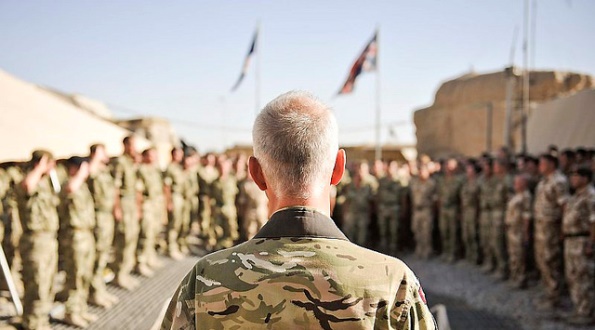BECOME A MEMBER
>JOIN
UK Defense Committee Publishes Report on Afghanistan and UK Involvement

The UK Parliament’s Defense Committee published its report calling for a comprehensive approach for an uneven peace and examination of past UK involvement in Afghanistan. The report is based on an inquiry from October 2013, for which the Parliamentarians Network for Conflict Prevention (PN) submitted written evidence on behalf of some of its members from Afghanistan and Pakistan.
In its report, the UK Defense Committee expresses the hope that “the new President of Afghanistan will move swiftly to sign the Bilateral Security Agreement and Status of Forces Agreement in order to confirm the legal basis on which international forces will operate in Afghanistan post-2014.”
If a new ISAF Status of Forces Agreement is signed, the Committee highlights that, in addition to the UK military training mission, other UK Government Departments will also be conducting activities in Afghanistan. The Committee notes that the ability of these agencies to operate will be determined by what is likely to be an uneven security situation and calls for assurance that a cross government response to ensure a Comprehensive Approach to the work of all UK Government Departments and agencies in Afghanistan will expressly be maintained.
The Committee recommends that the UK Government conduct a comprehensive review of UK involvement in Afghanistan. Such a study “should set out what the political ends were, how they changed during the course of the campaign, and judge whether the ways and means, diplomatic, economic and military, were sufficient during the course of the campaign.”
“The insurgency remains a strong and persistent threat to the future security and stability of Afghanistan”, the report notes, and “[t]he potential for post election conflict in Afghanistan will be heavily influenced by the extent to which the unsuccessful candidates accept the results and the extent to which those who are successful are able to develop consent for Afghan security forces to secure the country to allow it to develop.”
With regards to women’s rights and protection, the report highlights the PN members’ view that “compromise on women’s rights in any negotiations with the Taliban in Afghanistan is unacceptable”. According to the report, Vincent Devine, Director Operational Policy, Ministry of Defence, said that, post-2014, the international community would continue to fund much of the Afghan Government’s activity and that that funding would remain conditional on performance in respect of issues such as women’s rights.
The report concludes that “[t]he future of Afghanistan is uncertain. In the face of a determined insurgency, when international forces leave at the end of 2014 the Government of Afghanistan will find it challenging to continue to maintain security and exercise executive control across the country.” The UK Defense Committee “believe[s] that a lasting peace in Afghanistan can only be achieved through a process of reconciliation with the Taliban” and “encourage[s] the new Government of Afghanistan to begin a process of engagement as a matter of priority.”
Speaking on behalf of the UK Defense Committee, Dai Havard MP says:
To read the full UK Defense Committee Report, please click here.
To read the written evidence from the Parliamentarians Network for Conflict Prevention, accepted by the UK Defense Committee, please click here.
Photo courtesy of UK Ministry of Defence.

